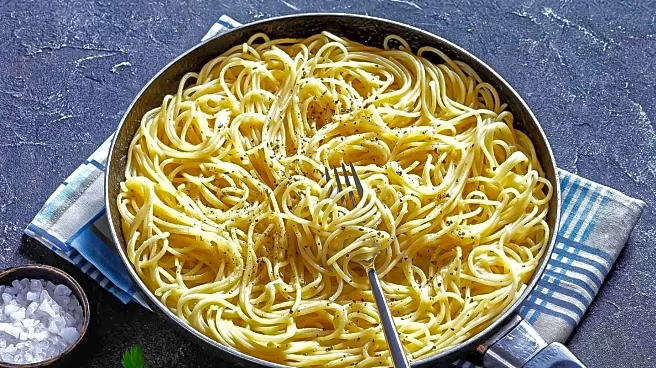What is the story about?
What's Happening?
A team of scientists led by ISTA physicist Fabrizio Olmeda received the Ig Nobel Prize for their research on creating the perfect cacio e pepe pasta sauce. The award, presented in Boston, honors research that initially amuses but ultimately provokes thought. Olmeda and his colleagues from various European institutions approached the culinary challenge scientifically, identifying the precise amount of starch needed to prevent the sauce from becoming lumpy. Their findings were published in the journal Physics of Fluids, offering a method to consistently achieve a creamy sauce by controlling the temperature and starch content.
Why It's Important?
The Ig Nobel Prize celebrates unconventional research that sparks interest in science and its application to everyday life. This recognition highlights the intersection of culinary arts and scientific inquiry, demonstrating how scientific principles can enhance practical tasks. The award encourages curiosity-driven research, promoting creativity and innovation across disciplines. It underscores the value of exploring diverse topics, even those outside traditional scientific fields, fostering a broader appreciation for scientific endeavors.
What's Next?
The award-winning research will be featured at the VISTA Science Experience Center, opening at ISTA's campus. The center aims to engage the public with scientific topics, including the pasta research, through interactive exhibits. The recognition may inspire further exploration of culinary science, encouraging scientists to apply their expertise to everyday challenges. The Ig Nobel Prize continues to promote interdisciplinary research, potentially influencing future studies in food science and other fields.
Beyond the Headlines
The Ig Nobel Prize serves as a reminder of the importance of humor and creativity in scientific research. It challenges the notion of what constitutes valuable research, encouraging scientists to pursue unconventional questions. The award fosters a culture of curiosity and innovation, highlighting the potential for scientific inquiry to impact diverse aspects of life, from gastronomy to global challenges.

















